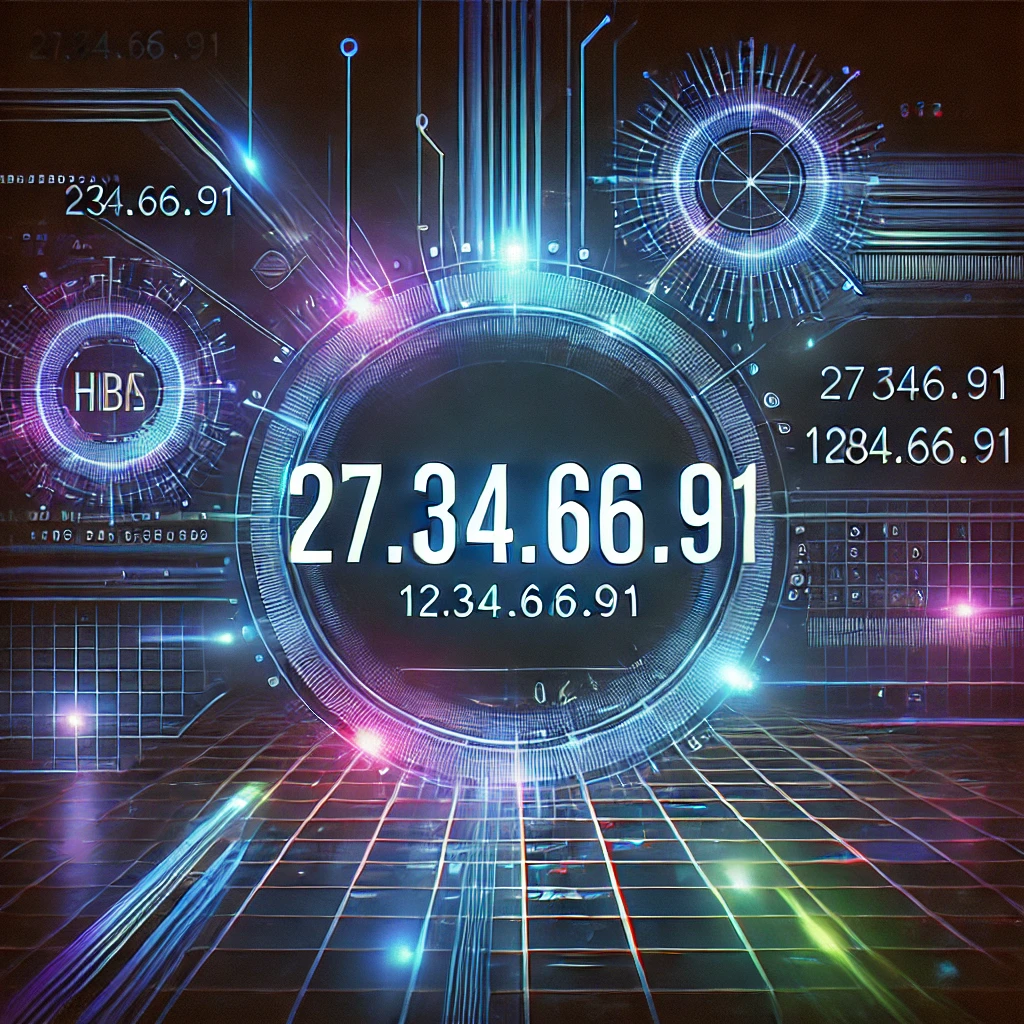If you’ve seen “27.34.66.91” showing up somewhere and you’re wondering what’s going on, you’re not alone.
In fact, lots of people are trying to figure out why they’re seeing this sequence.
So, let’s break it down in simple terms.
We’ll dig into what “27.34.66.91” could mean, where it might come up in everyday use, and how it connects to real-life examples.
By the end, you’ll have a clear picture of why “27.34.66.91” might matter to you and what you can do about it.
What is “27.34.66.91”? The Basics First
“27.34.66.91” is most likely an IP address.
If that term feels unfamiliar, think of an IP address as a home address for computers on a network.
Each device connected to the internet has one, and it’s a unique number like a digital fingerprint.
When you type in a website, your device uses IP addresses to find where that site is hosted.
So, “27.3 4.66.91” could be the identifier of a specific device or server on a network.
But here’s the kicker: IP addresses aren’t only technical; they show up in ways that could directly affect you.

Why Would “27.34.66.91” Show Up?
Here are some practical reasons why you might encounter “27.3 4.66.91”:
- Browsing History: Maybe it’s a link you clicked on from a site, and that link led back to a server with this IP address.
- Network Traffic: Some internet providers or services show you where your data travels, and “27.34.66.91” might be one of the stops.
- Network Devices: If you’re managing a network at home or work, it could be the IP of a router, camera, or other device.
- Location Services: IP addresses can hint at geographic locations, so maybe this number connects to a particular region’s network.
Let’s take it further and consider some practical scenarios.
Real-Life Examples of IP Addresses in Action
Think of IP addresses as phone numbers.
When you call a friend, their phone number connects you specifically to them, not to someone else.
Similarly, an IP like “27.34.66.91” can be tied to a website, a server, or even a specific device on your network.
Here are a few examples of how this might impact you:
- Online Security Checks: Sometimes, if you log in from a different IP address, like “27.3 4.66.91,” your bank or social account might ask for extra verification.
- Content Access: Some streaming services limit content based on IPs, so if “27.34.66.91” belongs to a certain region, it might restrict or allow certain content.
- Targeted Advertising: Ads sometimes use IP addresses to figure out where you are and show you ads relevant to your area.
If you’re scratching your head, let’s break down how IPs like “27.3 4.66.91” affect you specifically.
How to Find Out if “27.34.66.91” is Important to You
If you’ve seen this IP address somewhere, you might want to check what it’s linked to.
Here are quick ways to learn more about “27.34.66.91”:
- Use an IP Lookup Tool: Many websites allow you to type in “27.3 4.66.91” and learn more about the location and type of network.
- Check Your Device Settings: Sometimes, if this IP belongs to a device in your network, it’ll show up in your router or device settings.
- Scan for Security Risks: Tools like VPNs or security scanners sometimes identify IP addresses that appear suspicious. It’s good to know if “27.3 4.66.91” falls under this category.

FAQs: Common Questions on “27.34.66.91”
Q: Can “27.34.66.91” Reveal My Location?
A: Yes, IP addresses like “27.34.66.91” can hint at general locations, but they’re not precise enough to pinpoint a specific address. They mostly point to cities or regions.
Q: Is it Possible to Trace Who Owns “27.34.66.91”?
A: Usually, only internet providers and sometimes legal authorities can trace the specific owner of an IP address like “27.34.66.91.”
Q: Should I Worry if I See “27.34.66.91” in My Logs?
A: Not necessarily. It depends on the context. If it’s just showing up as a part of network traffic, it’s normal. But if it’s causing alerts, consider looking into it further.
Q: Can “27.34.66.91” Be Used for Malicious Purposes?
A: Yes, IPs can sometimes be misused, but an IP alone like “27.3 4.66.91” isn’t a risk by itself. It depends on how it’s being used.
How to Protect Yourself from IP Risks Like “27.34.66.91”
Now that we know IP addresses can reveal info, let’s talk about keeping yours secure.
A few smart steps can help:
- Use a VPN: Virtual Private Networks mask your IP, making it harder for websites to track you.
- Enable Firewalls: Most devices have them, and they block unwanted access from unknown IPs.
- Be Mindful of Public Wi-Fi: Networks you don’t trust can expose you to unknown IPs that might track you.
Let’s go back to that comparison with phone numbers.
Imagine you’re sharing a phone line with people you don’t know — you wouldn’t want random calls.
A VPN is like having your own private line.
So if “27.34.66.91” comes from a shared or untrusted network, a VPN can help reduce risks.
Wrapping Up: What “27.34.66.91” Means and Why It Matters
In the end, “27.3 4.66.91” is likely just one piece of a much bigger picture of the internet and digital networks.
You’ve learned how IP addresses work, seen some real-life examples, and picked up tips on keeping your IP secure.
If you want to explore more, consider using an IP lookup tool, but remember, “27.34.66.91” itself isn’t going to reveal your full story.
It’s just a number, but now you know how this piece fits into the bigger puzzle of online networks.
When “27.34.66.91” shows up, you’re ready to understand what it means and what, if anything, you might need to do about it.
Keeping an eye on your IPs — like “27.34.66.91” — could be a small but useful habit for a more secure online experience.



